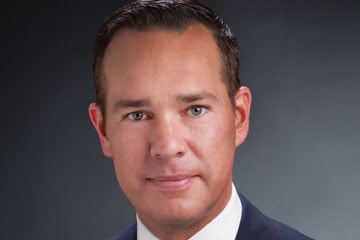
The job market for lawyers is looking up, according to recent survey where 63 per cent of respondents said their firm or legal department plan on hiring new practitioners in the next six months

The job market for lawyers is looking up, according to recent survey where 63 per cent of respondents said their firm or legal department plan on hiring new practitioners in the next six months.
The legal staffing consultancy company Robert Half Legal conducted the survey, which polled 150 lawyers across Canada over the last six months.
Each lawyer who provided a response had at least five years of experience, and had hiring responsibilities at their firm or company. They also either worked at law firms with 20 employees or more, or as part of an in-house legal department for companies with at least 1,000 employees
Lawyers who responded said they’ll be increasing their hiring. The findings show a 23 per cent jump in demand for new hires compared with the results from the 2018 survey, says Charles Volkert, senior district president of Robert Half Legal.
The positive hiring forecast in Canada matches the legal industry abroad, he says.
“The findings in Canada were very consistent, in particular, with what we're seeing throughout North America. There certainly is optimism for demand in hiring,” says Volkert, who is based in Toronto.
The most promising practice area is corporate law, followed by litigation, then privacy, data security and information law, said the survey. The legal jobs being added in the coming months include legal assistants and law clerks as well, with 44 of survey respondents saying they are looking to hire legal assistants and 39 per cent saying they are looking to hire law clerks.
Driving demand, says Volkert, is the continued growth of corporate legal departments and new, non-traditional legal roles. The findings are consistent with the growth Volkert has seen involving in-house legal departments in recent decades.
“I've been in this business 19 years. And you just go back 10 years ago and a lot of companies just literally had one or two lawyers. Those companies today may have 20, 30, 40 lawyers on their team. Some companies that never had a lawyer because they outsourced it all to their outside counsel, [but] now have one, two, or three lawyers internally,” he says.
Firms are hungry for lawyers with five to seven years of experience, who either “carry a book of business” or bring in business, Volkert says.
“Besides just being book smart, you have to have the interpersonal skills. And so there's just fewer of those individuals out there in the marketplace,” he says.
The demand is coming more from small to medium sized firms than from bigger firms, and aside from the continued growth in in-house legal departments, there is also major growth in temporary consultants, Volkert says.
“Our consulting practice has continued to literally double in size each of the last couple of years. Because, in particular, corporations are looking for ways to manage their legal risk, manage compliance, bring in project management and to create efficiencies,” he says. “Along with that, bringing in contractors and consultants for short-term engagements. And when I say short-term, you're looking at two to maybe six months. That may be because of the large litigation, maybe because of an internal investigation, maybe because of the compliance related matter.”
Businesses are also increasingly providing non-traditional legal roles to lawyers, says Volkert. An example of the burgeoning non-traditional legal roles is Robert Half’s own contracts department, he says. Six years ago, the company’s contracts were handled by their general counsel’s office and they began by hiring a lawyer to take over the task.
“He now has 41 lawyers globally on his team that only handle contracts. He has an additional 12 paralegals that handle those vendor-related contracts for our company. And he reports directly to the chief operating officer of the company,” Volkert says. “It is totally independent, in most respects, from the general counsel's office. So that's just an example of what we're seeing a lot of companies do.”
The most highly touted skillsets survey respondents desired, apart from legal knowledge, were practice-area expertise and technology skills. However, challenges still exist for those looking to hire. Forty per cent of respondents reported that a lack for qualified candidates was the greatest hiring challenge and 90 per cent said finding skilled lawyers was “somewhat or very challenging.”
The challenge also stems from how legal recruiters entice candidates, says Volkert. He works with 150 full-time talent recruiters and often asks them for a 30-second elevator pitch for what their organization has to offer a prospect.
“That's a very difficult question to answer for the hiring manager. They don't have it boiled down. And so they don't have a boil down for us, what are they saying to a highly sought-after candidate who may come and interview?” he says.
The difficulty the legal industry is having in keeping lawyers is illustrated by the fact that 34 per cent of survey respondents said they were only staffing vacated positions.
And money wasn’t the only factor identified as being important to prospective job candidates.
Thirty-one per cent of respondents identified flexible work arrangements as the top incentives for preventing attrition. Professional development opportunities were also a key driver of interest for 26 per cent of those surveyed a challenging, variety of work assignments were identified as crucial for job seekers by 24 per cent of the lawyers surveyed.
“Understanding your candidate, I think that's the other thing. Hiring managers don't always spend enough time listening and asking questions of the candidate, as far as what are their driving factors,” Volkert says.
“It's not all about compensation,” he says.